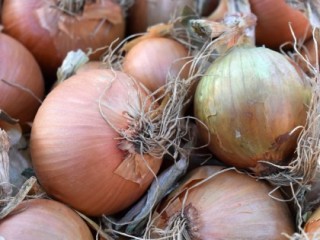
- Make investment decisions to improve yields and profit
- Improve efficiency of inputs
- Achieve better control by data and technology
Learning outcomes
At the end of this course you will be able to:
- Identify the best weed control solution for a given situation
- Understand the pros and cons of cultural versus chemical weed control
- Obtain maximum benefit from commercially available sampling, monitoring and forecasting systems for the major onion pests and diseases
- Identify and optimise control strategies for the major onion pests and diseases
- Develop a harvest strategy to maximise yield and quality
- Improve marketability out of store.
Designed for
Those at an advanced level such as assistant farm manager, or farm manager. Participants may already have a BASIS qualification and wish to build on this with the latest knowledge to optimise crop production, weed, pest and disease control to achieve maximum commercial crop yields and quality. ARTIS also run an intermediate level course more suited to those who are preparing for formal qualifications such as BASIS, or at an earlier stage of their career such as farm operatives.
Entry requirements
An advanced course is best suited to accomplished practitioners who want to implement the latest agri-tech research and knowledge on farm.
Price
£228 +VAT
Duration
A one-day virtual course
Date
22/01/2025
Location
Online - link will be sent to you after booking confirmation
CPD Points
8 Basis; 4 NROSO
Content
Classroom module 1 (half day):
Weed management
- Identification of common problem weeds and their economic importance
- Non chemical control methods including mechanical, cultivation and crop rotation
- Best use of residual and contact herbicide options for drilled and set crops
- Use of targeted applications of residual and contact herbicides (band and spot spraying)
Pest management
- Identification and biology of common pests and their economic importance
- Forecasting, sampling and monitoring
- The main insecticide groups, modes of action and resistance management
- Chemical and cultural control options including use of rotations
Classroom module 2 (half day):
Disease management
- Identification and biology of common diseases and their economic importance
- Forecasting, sampling and monitoring
- Discussion of main fungicide groups, modes of action and resistance management
- Chemical and cultural control options
Harvesting and storage
- Use of sprout suppressants
- Harvest timing/ strategy to optimise yield/ quality
- Store management to avoid physiological disorders and internal disease
Trainer
Andy Richardson, Managing Director Allium and Brassica Agronomy Ltd
Course code
PR24
When booking please include your name, company name and billing address.
